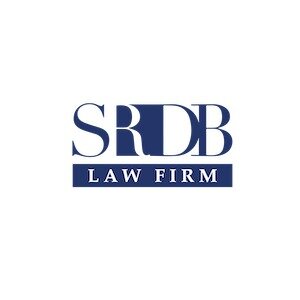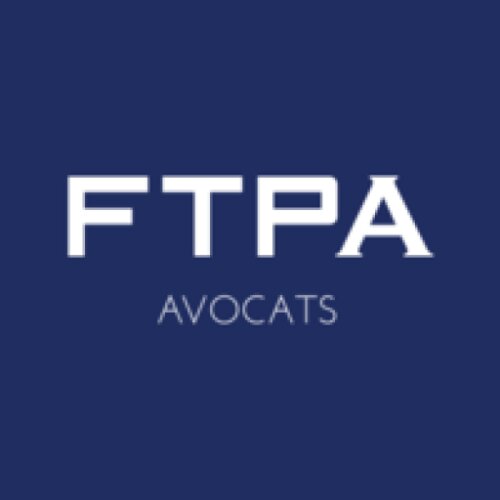Best Acquisition / Leveraged Finance Lawyers in France
Share your needs with us, get contacted by law firms.
Free. Takes 2 min.
Or refine your search by selecting a city:
List of the best lawyers in France
About Acquisition / Leveraged Finance Law in France
Acquisition and leveraged finance refers to the legal and financial arrangements that enable companies, investors, or private equity firms to acquire businesses or assets by using a combination of debt and equity. In France, this area of law is highly specialized and involves complex transactions, particularly in the context of mergers, acquisitions, and buyouts. It addresses how the acquisition is funded, which parties bear the risk, and what legal protections are in place for both lenders and borrowers. Given France's robust regulatory environment and influential position within the European Union, acquisition and leveraged finance transactions are subject to rigorous local and EU-level rules.
Why You May Need a Lawyer
Acquisition or leveraged finance transactions can be complicated and involve significant risks for buyers, sellers, lenders, and investors. You may need a lawyer in various scenarios, such as:
- Structuring or negotiating financing for acquiring a company or asset in France
- Reviewing or drafting loan documentation and security agreements
- Conducting due diligence on the target company, including assessment of debts and obligations
- Navigating legal compliance and regulatory approvals
- Protecting the interests of minority shareholders or creditors
- Restructuring debt post-acquisition
- Dealing with cross-border acquisitions involving French entities
- Addressing insolvency or financial distress scenarios post-acquisition
Professional legal advice is crucial to identify potential risks, negotiate favorable terms, and ensure compliance with French law.
Local Laws Overview
French law governing acquisition and leveraged finance derives from several sources, including the French Civil Code, Commercial Code, the Monetary and Financial Code, as well as European regulations. Some key aspects include:
- Restrictions on financial assistance: French law limits the circumstances under which a company can provide financial help for its own acquisition, known as the financial assistance prohibition.
- Security arrangements: France recognizes a variety of security interests, such as pledges (gages), mortgages (hypothèques), and assignment of receivables. The choice of security structure affects lender protection and enforceability.
- Covenants and creditor protection: Loan agreements often include covenants to protect lenders, including restrictions on further borrowing, asset sales, or dividend distributions.
- Enforcement and insolvency: Debt enforcement and insolvency procedures are primarily governed by French insolvency law, which favors restructuring and protection of the debtor.
- Cross-border issues: For acquisitions involving parties or assets outside France, EU Directives and international treaties may apply.
- Regulatory approvals: Mergers and acquisitions in certain sectors may require notification or approval from French authorities, such as the Autorité de la concurrence or sectoral regulators.
Frequently Asked Questions
What is acquisition finance?
Acquisition finance refers to the methods and legal structures used to fund the purchase of a company or significant business assets, often through a combination of debt and equity.
What is leveraged finance?
Leveraged finance involves using a significant amount of borrowed money to fund an acquisition, increasing potential returns but also elevating financial risk for both lenders and borrowers.
Are there restrictions on a company helping to finance its own acquisition?
Yes. French law generally prohibits a company from providing financial assistance for the acquisition of its own shares, subject to specific exceptions and careful structuring.
What types of security can lenders take in France?
Lenders in France can take various forms of security, including pledges over shares, receivables, bank accounts, inventory, mortgages over real property, and more. The optimal structure depends on the assets involved and transaction specifics.
How is due diligence conducted in French acquisition finance?
Due diligence typically includes investigating the target company’s financial health, legal standing, contractual obligations, assets, liabilities, and regulatory compliance. French counsel usually coordinates with other advisors to ensure comprehensive risk assessment.
What laws govern acquisition and leveraged finance in France?
The principal laws are found in the French Civil Code, Commercial Code, Monetary and Financial Code, and various EU regulations and directives that influence French practice.
What are the main challenges in cross-border acquisition finance transactions involving France?
Common challenges include legal and tax structuring, currency risk, differences in legal systems, regulatory approvals, and resolving conflicts of law.
How are loan agreements structured in France?
Loan agreements in France are usually based on international standards but tailor provisions to reflect specific risks, French law requirements, and issues such as enforcement or covenants.
What happens if a French borrower defaults on an acquisition loan?
If a borrower defaults, lenders can enforce security, initiate insolvency proceedings, or negotiate a restructuring deal. French insolvency laws influence lender rights and remedies.
Do acquisition and leveraged finance transactions require regulatory approval in France?
Some transactions, especially in sensitive sectors or above certain thresholds, require clearance from the Autorité de la concurrence or other regulatory authorities before completion.
Additional Resources
If you need more information or support on acquisition and leveraged finance in France, consider consulting the following resources:
- French Bar Association (Conseil National des Barreaux)
- Autorité des marchés financiers (AMF) - the French financial markets regulator
- Autorité de la concurrence - the national competition authority
- Chambre de Commerce et d'Industrie France
- Professional bodies and law firms specializing in mergers, acquisitions, and finance law
- Ministry of Economy and Finance for updates on financial regulation
Next Steps
If you require legal assistance or advice related to acquisition or leveraged finance in France, consider the following actions:
- Gather all relevant documentation regarding your intended acquisition or financing arrangement
- Consult with a lawyer specialized in acquisition and leveraged finance
- Prepare specific questions or concerns to discuss with your legal advisor
- Assess the need for support from other professionals, such as financial advisers or accountants
- Evaluate potential cross-border legal issues if your transaction involves parties or interests outside France
- Stay informed of regulatory changes that may affect your transaction
Engaging an experienced legal professional early in the process is crucial to ensure that your acquisition or financing in France is structured effectively, compliant with all relevant laws, and aligned with your strategic objectives.
Lawzana helps you find the best lawyers and law firms in France through a curated and pre-screened list of qualified legal professionals. Our platform offers rankings and detailed profiles of attorneys and law firms, allowing you to compare based on practice areas, including Acquisition / Leveraged Finance, experience, and client feedback.
Each profile includes a description of the firm's areas of practice, client reviews, team members and partners, year of establishment, spoken languages, office locations, contact information, social media presence, and any published articles or resources. Most firms on our platform speak English and are experienced in both local and international legal matters.
Get a quote from top-rated law firms in France — quickly, securely, and without unnecessary hassle.
Disclaimer:
The information provided on this page is for general informational purposes only and does not constitute legal advice. While we strive to ensure the accuracy and relevance of the content, legal information may change over time, and interpretations of the law can vary. You should always consult with a qualified legal professional for advice specific to your situation.
We disclaim all liability for actions taken or not taken based on the content of this page. If you believe any information is incorrect or outdated, please contact us, and we will review and update it where appropriate.
Browse acquisition / leveraged finance law firms by city in France
Refine your search by selecting a city.














